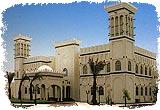The preparatory process for the Fourth WTO Ministerial Conference
In a sense the preparations for the Fourth Ministerial Conference of the WTO began immediately after the setback at Seattle. In early 2000 the Chairman of the General Council and the Director-General announced a comprehensive set of confidence-building measures.
In addition to the above confidence-building measures the year 2000 also saw the launch of the mandated negotiations on agriculture and services which combined account for over two-thirds of the world's economic output. Throughout 2000 these negotiations proceeded according to schedule and on their dedicated tracks with a high degree of participation from the entire WTO membership. At the end of March 2001 both negotiating processes reached a stocktaking point at which there was broad agreement among members that the work done so far had been both very constructive and provided a solid foundation for entering into the more detailed work of phase two.
On 8 February 2001 WTO members accepted the offer by Qatar to host the Fourth Ministerial Conference and at the same time provided the Chairman of the General Council, in cooperation with the Director-General, with a mandate to begin consultations on organizational and substantive matters related to the preparatory process for this event.
The General Council Chairman, Mr. Stuart Harbinson, Permanent Representative of Hong Kong, China, has recently intensified the preparatory process using as a framework a checklist of possible issues which was circulated on 20 April. The Chairman, in cooperation with the Director-General and the Secretariat, is using the checklist as well as input from delegations as a basis for organizing further intensive consultations.
So far the Chairman's preparatory process has been conducted largely on the basis of informal open-ended General Council meetings supplemented as necessary by other consultations. This approach reflects the wishes of members as expressed during discussions on internal transparency for a transparent, yet flexible and efficient process. The immediate focus of the Chairman's process is to clarify and build towards agreement on elements of the Doha agenda. This “bottom-up” approach has been widely welcomed by members. The Chairman has discouraged formal proposals such as those tabled in 1999 and has urged delegations to show a maximum of flexibility in seeking common ground among their established positions.
Since early this year various WTO members have taken initiatives outside the formal WTO structure to promote the inclusion of a number of items in the negotiating agenda post-Doha. These so-called “proponent-driven processes” have been particularly active in the areas of non-agricultural market access, investment, competition and environment. They are not seen as a substitute for the General Council process but as a source of inputs into that process, along with differing views of other members. Both the Chairman of the General Council and the Director-General have emphasized that the responsibility of bringing such inputs into the General Council preparatory process rests with the proponents.
WTO members are also spending considerable time and effort on the Implementation Review Mechanism, i.e. the dedicated process for addressing implementation-related issues and concerns. These issues remain very sensitive between certain developing-country and other members. The Director-General has continued to urge respect and realism on all sides in order to enable this complex of issues to become a positive contributor to the Doha outcome rather than a problem. The Chairman of the General Council has undertaken to review all the remaining issues before the end of June, and intensive efforts are going on to find an acceptable outcome.
The Director-General has articulated his intention to provide the WTO membership with a “reality check” by end July. The purpose of this exercise would be to clearly and frankly provide WTO members with a report on the situation and possibilities which arise out of the preparatory process until then. The Director-General has emphasized the importance of identifying a critical mass of subjects by the end of July which would form the basis for decisions at the Fourth Ministerial Conference. Nevertheless, despite the constructive tone of recent consultations in Geneva and elsewhere, members still remain far from answering key questions concerning the agenda for Doha. Well-known and well-defended positions are still dominating the discussions and while some signs of flexibility have begun to show there is still a sense that many players are waiting for others to make the first concessions.
The preparatory process for the Ministerial Conference in Doha has recently received important attention from international gatherings outside Geneva. However, while the arguments in favour of launching a new Round appear to be gaining ground, such political movement has yet to translate into concrete progress. In order to complement the Geneva process and build momentum for a positive outcome at Doha the Director-General has pursued a large number of contacts with ministers — both bilaterally and at international meetings. In these meetings, most recently at the OECD Ministerial Meeting in May, the Director-General has signalled the urgent need both for active political involvement to allow for the necessary flexibility in negotiating mandates and for close, continuous follow-up by ministers to ensure that the recent boost in political momentum carries through into action in Geneva and ultimately at Doha.
